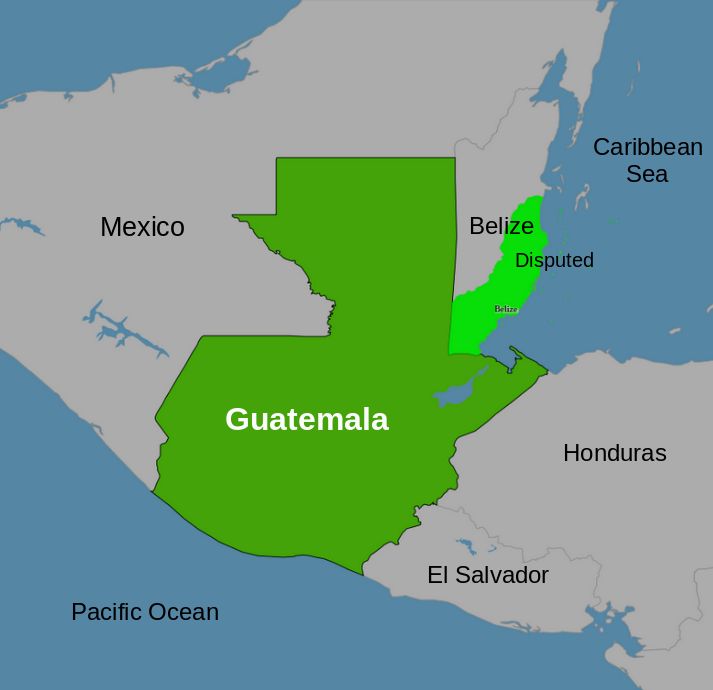A week after the general elections, following the preliminary announcement of the suspension of the results made by the Supreme Electoral Tribunal (TSE), nobody knows who the winners of the recent elections in Guatemala are or will be.
By Ollantay Itzamná
Nine political parties requested the Constitutional Court (CC) to order the TSE to review the electoral records again. And so it was: the CC ordered the TSE “not to declare any winner” until it resolved the complaints filed.
At the moment, almost no one knows if the second round of elections will be held on the established date. The winners and their voters find themselves in a political electoral limbo.
On the night of 25 June, the TSE preliminarily announced that Sandra Torres of the National Unity of Hope (UNE) party and Bernardo Arévalo of the Semilla party will go to the second round of the presidential elections on 20 August.
This news has already gone around the world. Progressive political sectors on the continent have already celebrated the “sudden news” of Bernardo Arévalo in the second round of the elections. Conservatives and some liberals, especially those involved in corruption, have been praying to the heavens for the possible return to the country of the “legion of 30” anti-corruption jurists “expelled” from Guatemala in recent years.
The Semilla group and its proximity to the US government
The political organisation Semilla was born out of urban social protests against corruption in 2015. Its founders, middle-class mestizos, according to the testimony of Alberto Fuentes Knight (one of the founders, later imprisoned for acts of corruption), “before making the leap from the social to the political, we travelled to North America to consult with Democratic and Republican representatives if this decision was correct or not”. Thus, was born the political organisation Semilla, ideologically self-described as ‘social democrat’, on the waves of anti-corruption social protests promoted by the US in Guatemala.
In 2015, US ambassador Todd Robinson, from a corroded little school in Izabal, called for massive urban social protests in Guatemala “against corruption” that culminated in the overthrow of then president Otto Pérez Molina and his vice-president Roxana Baldetti.
The two governments that followed after Pérez Molina were involved in the same or worse acts of corruption, but the “fight against corruption” had already cooled, because the US government no longer cared: Lula had already been imprisoned, Correa exiled….
The fight against corruption, the fate of CICIG and US indifference
Once the US government had managed to set itself up as the “avenging angel” against corruption in Guatemala and the continent, and after promoting the imprisonment of Lula da Silva, and the removal of Dilma Rousseff in Brazil (Rafael Correa, former president of Ecuador, exiled in Europe and politically disqualified like Cristina Fernández in Argentina), the US government forgot about “its battle against corruption” on the coninent.
To the extent that, in Guatemala, the government of Jimmy Morales (with self-confessed acts of corruption) decided to expel the head of the International Commission against Corruption and Impunity in Guatemala (CICIG) and dismantle the structure of prosecutors against impunity (FECI). But the US government remained complicitly silent.
What followed after that, with the judicial brawl or revenge between ghettos of the corrupt oligarchy in the country, is current news: more than 30 prosecutors, judges and lawyers against corruption ostracised, journalists imprisoned or prosecuted, media outlets like El Periódico forced to close… Did the US government care? NO.
American progressivism in the progressive continent
After the judicial persecution of rulers “contrary” to US interests, the people of Brazil, Mexico, Argentina, Honduras, Nicaragua, Colombia, Venezuela, Peru, Bolivia and Chile continued to vote for more “progressive” rulers at the ballot box.
Faced with this new overwhelming wave of progressive governments that are going along with China and Russia on the content, the North American government, in desperation, opted to join forces with its enemy (progressivism), and to delegitimise from within so that the people would not vote for progressives again. This is the emblematic case of Gabriel Boric, in Chile, elected as a popular progressive government, now at the service of US interests. Even taking shots at similar progressive governments in the region.
In the case of Guatemala, the political group Semilla never protested or rejected US interference in the country.
Bernardo Arévalo, Semilla’s presidential candidate who will advance to the second round, studied and was a diplomat in Israel (he never denounced the countless US invasions of foreign countries, but condemns the governments of Nicaragua and Venezuela). Arévalo is the son of the historic liberal president of Guatemala, Juan José Arévalo, who initiated the decade of the National Revolution (1944-1954), which was annihilated by the US government in 1954.
At the time, in the face of the “judicialisation” of the 25 June election results, which, according to analysts, was aimed at “excluding Bernardo Arévalo from the second round of voting”, the US embassy issued a statement demanding “respect for the country’s democratic principles”. However, when the TSE unconstitutionally excluded the anti-system presidential candidate Thelma Cabrera and Jordán Rodas, or two other candidates, in the middle of the 2023 elections, there was no statement from the US embassy.
In a few more months, the bicentennial Monroe Doctrine (2 December), a US policy of annexing (garrotear) the peoples of the continent, will be remembered. In recent years, this Doctrine, like other gringo doctrines, has lost ground and acceptance among the peoples of the South. So, the shrewd eagle is once again seeking to crush its prey. Could it be that, now, the indolence of the North American government will lead us to applaud a progressivism that will end up burying the dreams of emancipation of the peoples of Guatemala and the continent for a long time to come?
Ollantay Itzamná is a defender of Mother Earth and Human Rights from Abya Yala.
https://ollantayitzamna.com/ – @JubenalQ










